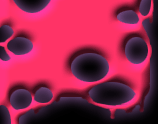Antibiotic: Chemical agent that selectively kills pathogenic microorganisms.
Antibody: A globular protein produced by plasma cells that will bind to specific antigens and promote their destruction or removal from the body.
Antigen: A substance capable of inducing the production of antibodies.
Antihistamine: Drugs that combat the histamine released during an allergic reaction by blocking the action of the histamine on the tissue. Antihistamines do not stop the formation of histamine nor do they stop the conflict between the IgE and antigen.
Autoimmune Disease: An illness that occurs when the body tissues are attacked by its own immune system. The immune system is a complex organization within the body that is designed normally to "seek and destroy" invaders of the body, including infectious agents.
Bone marrow: Bone marrow contains cells called Hemocytoblasts; these cells create B-cells and NK cells as well as other cells that later move to the thymus to help create T-cells.
Fever: This is when the body temperature rises above 99F. Protein cells called pyrogen tell the hypothalamus of the brain to raise the bodys temperature. The advantage to the high temperature is that the immune system can work faster.
Helper-T cells: Cells that coordinate the cellular and humeral immune responses.
Immune response: The process of your white blood cells coming and attacking foreign pathogens.
Immunology: The study of the human immune system.
Inflammatory response: A nonspecific defense mechanism that is characterized by swelling, redness, warmth, pain, and some loss of function.
Interferon: Peptides released by virus-infected cells that make other cells more resistant to the illness they are harboring.
Killer-T cells: T cells that directly attack foreign cells.
Leukocytes: Another name for white blood cells, these cells defend the body by removing toxins, wastes, and any abnormal tissues.
Lymphocytes: These are the main cells of the immune system. There are 3 types of Lymphocytes.
1. T-cells: These cells attack foreign cells directly and stimulate or inhibit the activities of other lymphocytes.
2. B-cells: These cells can secrete antibodies that can attack alien cells or proteins in different parts of the body.
3. Natural Killer (NK) cells: These cells are responsible for immune surveillance and the destruction of the bodys own abnormal tissues.
Macrophage: Large, active phagocyte cells derives from monocytes in the blood can be attracted by chemicals in the surrounding fluids called chemotaxis.
Pathogen: Foreign microorganisms that invade the human body.
Thymus gland: This is where T-cells are formed.
Vaccine: A medical immunity technique were dead or weakened forms of a certain disease are released in the human body so the white blood cells can learn to recognize and kill the intruders.

